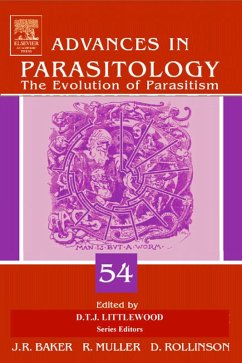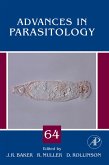The Evolution of Parasitism - A Phylogenetic Perspective aims to bring together a range of articles that exemplifies the phylogenetic approach as applied to various disciplines within parasitology and as applied by parasitologists. Unified by the use of phylogenies, this book tackles a wide variety of parasite-specific biological problems across a diverse range of taxa.
- Includes important contributions from leading minds in the field such as Serge Morand, Francisco Ayala and Mark Blaxter, among others
- Second in the ISI Parasitology List in 2002 with an Impact Factor of 4.818
- Series encompasses over 35 years of parasitology coverage
Dieser Download kann aus rechtlichen Gründen nur mit Rechnungsadresse in A, B, BG, CY, CZ, D, DK, EW, E, FIN, F, GR, HR, H, IRL, I, LT, L, LR, M, NL, PL, P, R, S, SLO, SK ausgeliefert werden.









